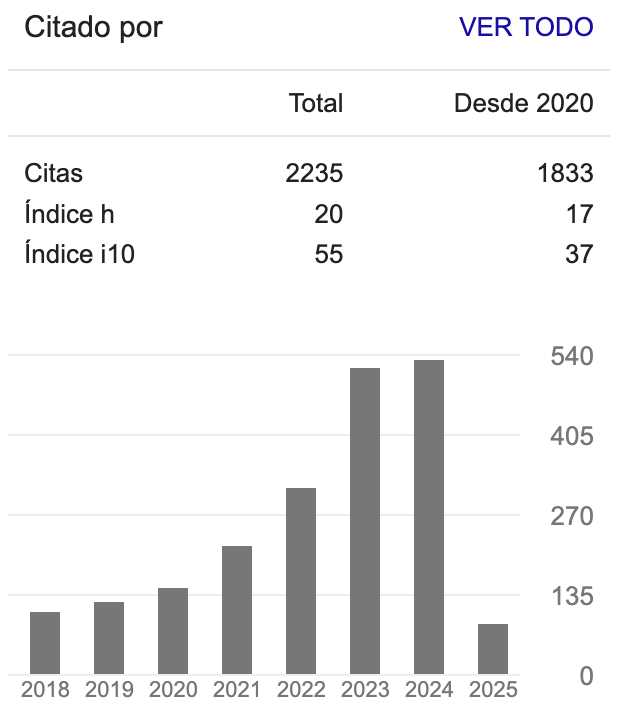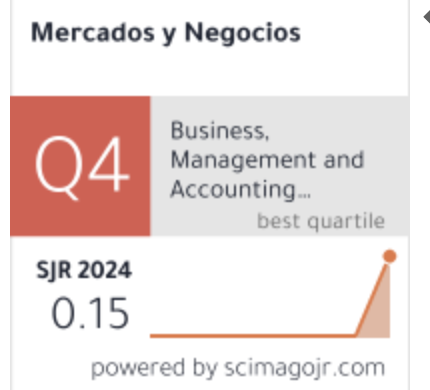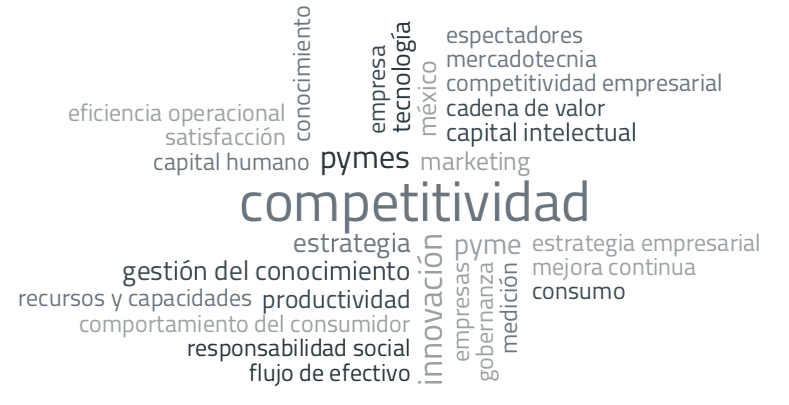Situational Impulsive and Compulsive Online Purchase of Fashion Products in Generation Z
DOI:
https://doi.org/10.32870/myn.vi55.7823Keywords:
impulsive buying, compulsive buying, Generation Z, financial management, materialism, socioeconomic status, time affluence, online fashion purchases.Abstract
This study investigates the situational factors influencing impulsive and compulsive online purchases of fashion products among Generation Z. The findings indicate that financial management has a negative and significant effect on impulsive buying, meaning that better financial management reduces the likelihood of impulsive purchases. On the other hand, materialism and socioeconomic status positively and significantly affect impulsive buying, showing that stronger materialistic traits and higher socioeconomic status increase unplanned purchasing behavior. Time affluence demonstrates a positive but insignificant effect, suggesting that having ample time does not necessarily influence impulsive buying decisions. Additionally, impulsive buying is found to have a positive and significant impact on compulsive buying, indicating that unplanned purchases, combined with emotional attachment to fashion products, escalate into compulsive buying behavior. The study's limitations include a focus solely on Generation Z and fashion products purchased online, which restricts its generalizability to other generations and product categories. These findings offer valuable insights into understanding and managing impulsive and compulsive buying behaviors in the online fashion retail context.References
Ahmadova, E., & Nabiyeva, A. (2024). Analysis of the impulsive buyer behavior: empirical evidence from Azerbaijan. Journal of Islamic Marketing, 15(2), 314–337. https://doi.org/10.1108/JIMA-10-2022-0271
Akram, U., Hui, P., Kaleem Khan, M., Tanveer, Y., Mehmood, K., & Ahmad, W. (2018). How website quality affects online impulse buying. Asia Pacific Journal of Marketing and Logistics, 30(1), 235–256. https://doi.org/10.1108/APJML-04-2017-0073
Ayuningtyas, M., & Irawan, A. (2021). The influence of financial literacy on Bandung Generation Z consumers' impulsive buying behavior with self-control as a mediating variable. Advanced International Journal of Business, Entrepreneurship and SMEs, 3(9), 155–171. https://doi.org/10.35631/AIJBES.39012
Bighiu, G., Manolică, A., & Roman, C. (2015). Compulsive Buying Behavior on the Internet. Procedia Economics and Finance, 20, 72–79. https://doi.org/10.1016/S2212-5671(15)00049-0
Burchardt, H., & Ickler, J. (2021). Time to live well: well-being and time affluence for sustainable development. Third World Quarterly, 42(12), 2939–2955. https://doi.org/10.1080/01436597.2021.1981761
Cho, H., Chiu, W., Kang, H., & Lee, H. (2025). Gender differences in the effects of nostalgia on conspicuous consumption and impulsive buying. International Journal of Sports Marketing and Sponsorship, 26(1), 1–21. https://doi.org/10.1108/IJSMS-04-2024-0081
Cirino, P., Chin, C., Sevcik, R., Wolf, M., Lovett, M., & Morris, R. (2002). Measuring socioeconomic status: reliability and preliminary validity for different approaches. Assessment, 9(2), 145–155. https://doi.org/10.1177/107911020090020
Creswell, J. (2013). Research design: Qualitative, quantitative, and mixed methods approaches. Sage Publications.
Deepa, A., & Elangovan, A. . (2024). Unveiling the Disruptive Force: Analyzing the Impact of Digital Shopping. Mercados y Negocios, (53), 27–50. https://doi.org/10.32870/myn.vi53.7745
Duan, X. (2025). Mental simulation and compulsive buying: a multiple mediation model through impulse buying and self-control. Frontiers in Psychology, 16, 1507031. https://doi.org/10.3389/fpsyg.2025.1507031
Duarte, L., Feierherd, G., Mangonnet, J., & Murillo, M. (2025). Peasant Resistance in Times of Economic Affluence: Lessons From Paraguay. Comparative Political Studies, 58(3), 494–525. https://doi.org/10.1177/0010414024123747
Gaur, K. (2013). Socioeconomic status measurement scale: thirst area with changing concept for socioeconomic status. International Journal of Innovative Research and Development, 2(9), 139–145.
Huang, W., Wang, X., Zhang, Q., Han, J., & Zhang, R. (2025). Beyond likes and comments: How social proof influences consumer impulse buying on short-form video platforms. Journal of Retailing and Consumer Services, 84, 104199. https://doi.org/10.1016/j.jretconser.2024.104199
Hudson, C., Young, J., Anong, S., Hudson, E., & Davis, E. (2017). African American financial socialization. The Review of Black Political Economy, 44(3–4), 285–302. https://doi.org/10.1007/s12114-017-925
Husnain, M., Zhang, Q., Salo, J., Shahzad, M., Hayat, K., & Akhtar, M. (2025). Facebook Second‐Hand Marketplace Browsing Influence on Impulse Buying: A Mixed‐Methods Study. International Journal of Consumer Studies, 49(1), e70019. https://doi.org/10.1111/ijcs.70019
Islam, T., Sheikh, Z., Hameed, Z., Khan, I., & Azam, R. (2018). Social comparison, materialism, and compulsive buying based on stimulus-response-model: a comparative study among adolescents and young adults. Young Consumers, 19(1), 19–37. https://doi.org/10.1108/YC-07-2017-00713
Iyer, G., Blut, M., Xiao, S., & Grewal, D. (2020). Impulse buying: a meta-analytic review. Journal of the Academy of Marketing Science, 48(3), 384–404. https://doi.org/10.1007/s11747-019-00670-w
Jalees, T., Khan, S., Zaman, S., & Miao, M. (2024). The effect of religiosity, materialism and self-esteem on compulsive and impulsive buying behavior. Journal of Islamic Marketing, 15(11), 2697–2731. https://doi.org/10.1108/JIMA-03-2022-0078
Kong, X., Wang, R., & Zhang, Y. (2025). Exploring the influence of “keeping consumers in suspense” in live streaming on consumer impulse buying behavior: A test of the mediating effects of consumer inner states. Acta Psychologica, 253, 104762. https://doi.org/10.1016/j.actpsy.2025.104762
LaJeunesse, S., & Rodríguez, D. (2012). Mindfulness, time affluence, and journey-based affect: exploring relationships. Transportation Research Part F: Traffic Psychology and Behaviour, 15(2), 196–205. https://doi.org/10.1016/j.trf.2011.12.010
Lim, S., Tan, Y., Loh, X., Cham, T., Ooi, M., & Tan, G. (2025). It’s not all fun and games: gamification in e-commerce on consumers’ impulse buying of retail food products. British Food Journal, 127 (3). https://doi.org/10.1108/BFJ-04-2024-0361
Liu, X. S., Shi, Y., Xue, N., & Shen, H. (2022). The impact of time pressure on impulsive buying: The moderating role of consumption type. Tourism Management, 91, 104505. https://doi.org/10.1016/j.tourman.2022.10450
Lučić, A., Uzelac, M., & Previšić, A. (2021). The power of materialism among young adults: exploring the effects of values on impulsiveness and responsible financial behavior. Young Consumers, 22(2), 254–271. https://doi.org/10.1108/YC-09-2020-1213
Malhotra, N. (2004). Marketing Research: An Applied Orientation. Pearson Education.
Mestre-Bach, G., Steward, T., Jiménez-Murcia, S., & Fernández-Aranda, F. (2017). Differences and Similarities Between Compulsive Buying and Other Addictive Behaviors. Current Addiction Reports, 4(3), 228–236. https://doi.org/10.1007/s40429-017-0153-z
Mukhtar, K., Abid, G., Rehmat, M., Butt, T., & Farooqi, S. (2021). Influence of materialism in impulse buying. Moderated mediation model. Ilkogretim Online, 20(5), 6104–6117. https://doi.org/10.17051/ilkonline.2021.05.686
Ningtyas, M., & Vania, A. (2022). Materialism, Financial Literacy, and Online Impulsive Buying: A Study on the Post-Millennial Generation in a Pandemic Period. Jurnal Manajemen Teori Dan Terapan | Journal of Theory and Applied Management, 15(1), 1–12. https://doi.org/10.20473/jmtt.v15i1.33774
Oktaviana, Y., & Irawan, A. (2024). The Effect of Financial Literacy on Impulsive Buying Behavior Towards Online Food Delivery of Generation Z and Millennials in Indonesia with Media as A Moderating Variable. Journal Integration of Management Studies, 2(1), 129–139. https://doi.org/10.58229/jims.v2i1.179
Ongsakul, V., Ali, F., Wu, C., Duan, Y., Cobanoglu, C., & Ryu, K. (2021). Hotel website quality, performance, telepresence and behavioral intentions. Tourism Review, 76(3), 681–700. https://doi.org/10.1108/TR-02-2019-0039
Owusu, G., Amoah, R., Arthur, M., & Koomson, T. (2023). Antecedents and consequences of compulsive buying behaviour: the moderating effect of financial management. Journal of Business and Socioeconomic Development, 3(3), 197–213. https://doi.org/10.1108/JBSED-04-2021-0049
Özdemir, N. (2022). Materialism and compulsive buying: A moderated mediation model of impulsive buying and religiosity. MANAS Sosyal Araştırmalar Dergisi, 11(4), 1603–1614. https://doi.org/10.33206/mjss.1127198
Pupelis, L., & Šeinauskienė, B. (2023). Effect of consumer self-discrepancy on materialism and impulse buying: the role of subjective well-being. Central European Management Journal, 31(2), 222–240. https://doi.org/10.1108/CEMJ-12-2021-0154
Shamim, K., & Azam, M. (2025). The power of the content of the influencers in inducing impulse buying: mediating role of trust. Asia Pacific Journal of Marketing and Logistics. https://doi.org/10.1108/APJML-08-2024-1083
She, L., Rasiah, R., Waheed, H., & Pahlevan Sharif, S. (2021). Excessive use of social networking sites and financial well-being among young adults: the mediating role of online compulsive buying. Young Consumers, 22(2), 272–289. https://doi.org/10.1108/YC-11-2020-1252
Singh, K., & Malik, S. (2022). An empirical analysis on household financial vulnerability in India: exploring the role of financial knowledge, impulsivity and money management skills. Managerial Finance, 48(9/10), 1391–1412. https://doi.org/10.1108/MF-08-2021-0386
Syah, S., Sumantri, C., Arief, I., & Taufik, E. (2017). Research article isolation and identification of indigenous lactic acid bacteria by sequencing the 16S rRNA from dangke, A traditional cheese from Enrekang, South Sulawesi. Pakistan J. Nutr, 16, 384–392. https://doi.org/10.3923/pjn.2017.384.392
Tahir, M., Ahmed, A., & Richards, D. (2021). Financial literacy and financial well-being of Australian consumers: A moderated mediation model of impulsivity and financial capability. International Journal of Bank Marketing, 39(7), 1377–1394. https://doi.org/10.1108/IJBM-09-2020-0490
Tantawi, P. (2024). Materialism, life satisfaction and Compulsive Buying Behavior: An empirical investigation on Egyptian consumers amid Covid 19 pandemic. International Review on Public and Nonprofit Marketing, 21(1), 1–25. https://doi.org/10.1007/s12208-022-00360-4
Tarka, P., Harnish, R., & Babaev, J. (2022). From materialism to hedonistic shopping values and compulsive buying: A mediation model examining gender differences. Journal of Consumer Behaviour, 21(4), 786–805. https://doi.org/10.1002/cb.2037
Tröger, J., Wullenkord, M., Barthels, C., & Steller, R. (2021). Can reflective diary-writing increase sufficiency-oriented consumption? A longitudinal intervention addressing the role of basic psychological needs, subjective well-being, and time affluence. Sustainability, 13(9), 4885. https://doi.org/10.3390/su13094885
Ugbomhe, O. U., & Adomokhai, S. S. Effects of Demographic Factors on Impulse Buying Behaviour of Consumers in Auchi, Edo State, Nigeria. Economics and Business Quarterly Reviews, 4(2). https://doi.org/10.31219/osf.io/xcrz2
Xiao, Y., Liu, M., & Wu, B. (2023). The effect of social appearance anxiety on the online impulse purchases of fashionable outfits among female college students during pandemic periods: the mediating role of self-control and the moderating role of subjective socioeconomic status. Psychology Research and Behavior Management, 16, 303–318. https://doi.org/10.2147/PRBM.S392414
Zhao, G., Liu, X., Tan, H., & Yang, S. (2025). The effect of self‐control on impulsive consumption with the moderators of family socioeconomic status and peer feedback. Asian Journal of Social Psychology, 28(1), e12663. https://doi.org/10.1111/ajsp.12663
Zhao, Y., Li, Y., Wang, N., Zhou, R., & Luo, X. (2022). A meta-analysis of online impulsive buying and the moderating effect of economic development level. Information Systems Frontiers, 24(5), 1667–1688. https://doi.org/10.1007/s10796-021-10170-4
Downloads
Published
How to Cite
Issue
Section
License
Copyright (c) 2025 Ni Wayan Ekawati, I Gusti Ayu Ketut Giantari, Komang Rahayu Indrawati, I Gusti Ayu Tirtayani, Irene Hanna Sihombing

This work is licensed under a Creative Commons Attribution-NonCommercial 4.0 International License.
Mercados y Negocios by Department of Mercadotecnia y Negocios Internacionales. University of Guadalajara is licensed under a License Creative Commons Attribution-NonCommercial 4.0 International.
The author retains the copyright.








